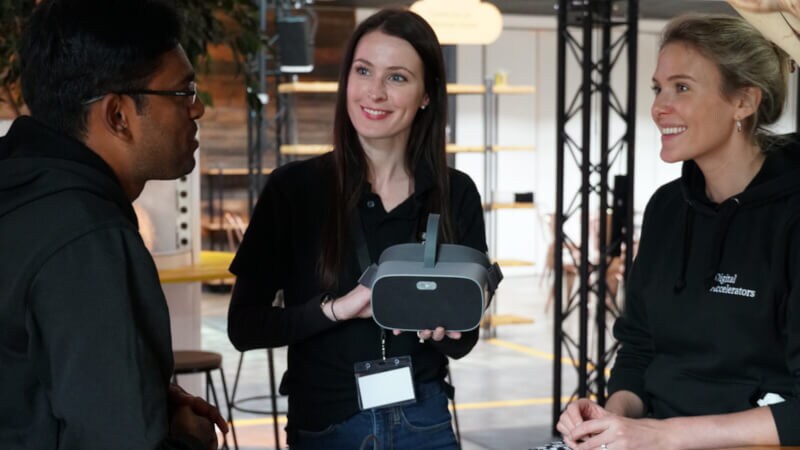Total recall: How virtual reality is transforming training
Virtual reality (VR) is energising training programmes in a number of sectors by opening up environments that would be expensive, dangerous or limited in the real world.
An immersive, emotive experience - which can feel far more exciting than traditional workplace training - can boost recall and prove highly effective in teaching new skills and procedures.

High-risk scenarios
In our recent ‘Seeing is Believing’ report we highlighted the use of VR to replicate high-risk and complex environments.
In healthcare, for example, student doctors are using VR to gain access to virtual operating theatres. Militaries are using VR to train soldiers for bomb disposal, and oil companies are recreating risky scenarios on rigs.
But VR has far more to offer, that is relevant to everybody - not just surgeons, soldiers and rig workers - including benefits such as the development of behavioural skills.
Virtual reality, real results
Using immersive and interactive experiences, VR can drop you into difficult conversations, appraisals, or interviews. You can test your own responses, or step into the shoes of team members. VR can put you on stage in front of an audience or transport you into a high-pressure presentation. Crucially, it can remove the need for role play which many people feel more self-conscious about than any experience in VR.
We’re using VR to drive behavioural change in our own people, running training sessions for up to 1,000 PwC colleagues a day.
Other organisations are also benefiting from the efficiencies in scale and cost that VR brings to training which are only just starting to emerge.
A British start-up, Sublime, is working with the University of Glasgow on bespoke immersive teaching solutions to support their current and traditional curriculum. Students are using tailored VR and augmented reality (AR) apps which enable both organisations to collect segmented, higher quality, active and passive learner data - and data about the learning process itself. This rich new data will be used to help inform teaching and curriculum development at the university.
Martin McDonnell, Sublime’s chief executive officer, told us:
“We want to learn how the learners learn. VR gives us a trackability and measurability of what people do when they’re learning. We’re currently working on exciting developments in terms of collecting biometric data, which is better enabling students at the university to understand the current curriculum.”
Experience the power of VR
We had hugely positive feedback from a recent programme we ran for a client, helping to embed new behaviours at the top of an organisation to improve employee engagement and address cultural challenges.
Using VR, we put leaders into the virtual shoes of their team members, so they could feel what it is like to be on the other side of the desk. It showed how poor behaviours at the top impacted not only people in their teams but customers too.
The video-based experience we immersed them in was only seven minutes long, but our debrief afterwards revealed the penny dropped for participants surprisingly quickly as to the changes that needed to be made in management styles.
Economic impact of VR
In our report, PwC economists predict VR and AR have the potential to boost the global economy by $1.5 trillion over the next 10 years, with one fifth of that ($294 billion) driven by their use in training.
To take advantage of these benefits, we encourage all organisations to think how VR can enrich training programmes. Such planning should also include consideration of issues that could hamper effectiveness.
For example, many people will find VR exciting, but others may be intimidated. So supporting and reassuring learners should be well planned, with consideration given to ensure it is accessible to all.
In our report, we set out five steps to get started with VR and AR. For more information, please get in touch.










